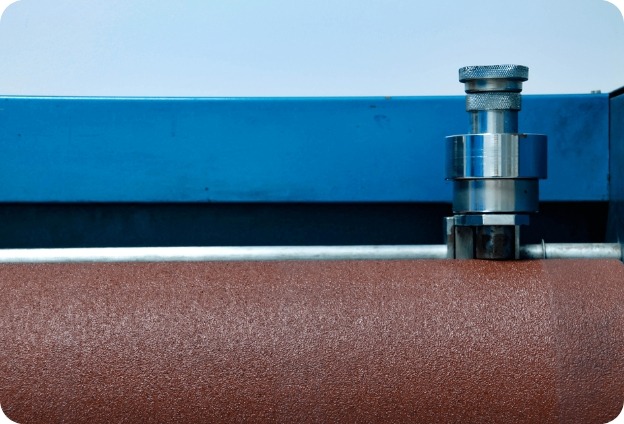Level Up Quality & Combat Corrosion with NACE-Certified Coating Inspections

Over time, corrosion can take a toll on critical equipment and infrastructure, putting your business at greater risk of safety hazards, costly downtime, and catastrophic failures.
The right coatings, when properly applied, help to keep corrosion at bay, reduce maintenance and operational costs, enhance safety, and extend service life. And the right inspection experts, like those at Industrial Inspection & Analysis (IIA), can ensure that your coating project complies with internationally recognized codes, standards, and specifications, along with ensuring that crews follow all manufacturer’s recommendations.
Why You Need a Certified Coatings Inspector
Inspections by a certified professional will help ensure that protective coatings are properly applied, perform as intended, and meet all applicable standards and regulations.
Trained inspectors certified by recognized organizations such as NACE International / AMPP or the SSPC possess the necessary experience, knowledge, and hands-on skill to examine areas such as coating application, thickness, and adhesion.
The keen eye of a certified coatings inspector can quickly spot potential problem areas and deviations from specified standards. The skill and expertise they bring to your project will help ensure compliance with internationally recognized standards for corrosion control and coatings.
The Coating Inspection Process
Coatings inspections span the entire coating process—from surface preparation to final coating application and testing. Using visual testing, non-destructive testing (NDT) and destructive testing, certified coatings inspections typically assess these areas:
- Surface Preparation
- Coating Application
- Environmental Conditions
- Coating Thickness
- Adhesion
- Visible Cracks, Bubbles & Inconsistencies
- Temperature
- Dew Point
- Humidity
- Coating Mixing Ratios
- Induction Time
- Pot Life
- Cure Times
- Correct Use/Selection of Holiday Tester
Inspection Certification Levels – An Overview
Level 1: Basic Coatings Inspector
Suitable for beginners with limited coatings work experience, this level involves the use of basic, non-destructive methods to inspect liquid coatings applied by spray, roller, or brush to steel surfaces. Level 1 inspectors possess general knowledge of principles related to surface preparation, coating application, and safety practices.
Level 2: Certified Coatings Inspector
This more advanced level reflects greater experience and knowledge of corrosive processes. Level 2 inspectors are capable of performing more complex inspections that include both liquid and non-liquid coatings on a variety of surfaces in a shop setting. Level 2 expertise also includes monitoring of environmental controls like dehumidification during field operations.
Level 3: Senior Certified Coatings Inspector
Level 3 inspectors are technical experts and leaders in the field, capable of undertaking complex, unsupervised non-destructive and destructive inspections of liquid and non-liquid coatings applied to any substrate. Level 3 inspectors supervise Level 1 & 2 inspectors and provide clients with guidance on protective coatings, corrosion prevention, and surface preparation. They also have the technical expertise and regulatory insight to develop, review, and interpret coating specifications, standards, and procedures and conduct root-cause investigations.
Coatings inspectors may also pursue specialty certifications in specific industries, such as nuclear, marine, or bridge coatings.
Benefits of a Certified Coatings Inspection
Coatings inspections performed by a certified professional provide peace of mind that high standards of safety and quality will be upheld. Certified coatings inspectors play a crucial role in:
- Extending asset life
- Preventing failures
- Mitigating safety & environmental risk
- Reducing maintenance & operational costs
- Ensuring compliance with regulations and standards, such as SSPC, NACE/AMPP, ISO, and ASTM
- Providing unbiased, accurate data for informed decision-making
Why Choose IIA?
If your team doesn’t have the time or expertise to manage coatings projects, Industrial Inspection & Analysis can provide third-party oversight to ensure that the coating process complies with project specifications and relevant codes and standards. Our team includes Levels 1–3 AMPP/NACE-certified coatings inspectors who understand the ins-and-outs of surface preparation, coating material, workmanship, and inspection. Our Level 3 inspectors can provide leadership and expert guidance for major industrial or infrastructure projects.
As a full-service provider, IIA offers an expansive menu of industrial inspections, engineering solutions, and non-destructive testing (NDT) services that save customers time and trouble. Our experts are here to help with corrosion control, coating repair, and maintenance planning to ensure that the safety and service life of assets exceed your expectations.




